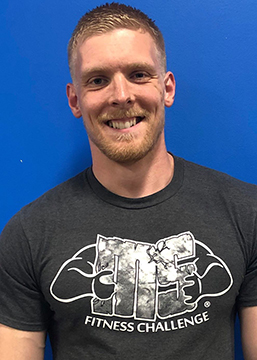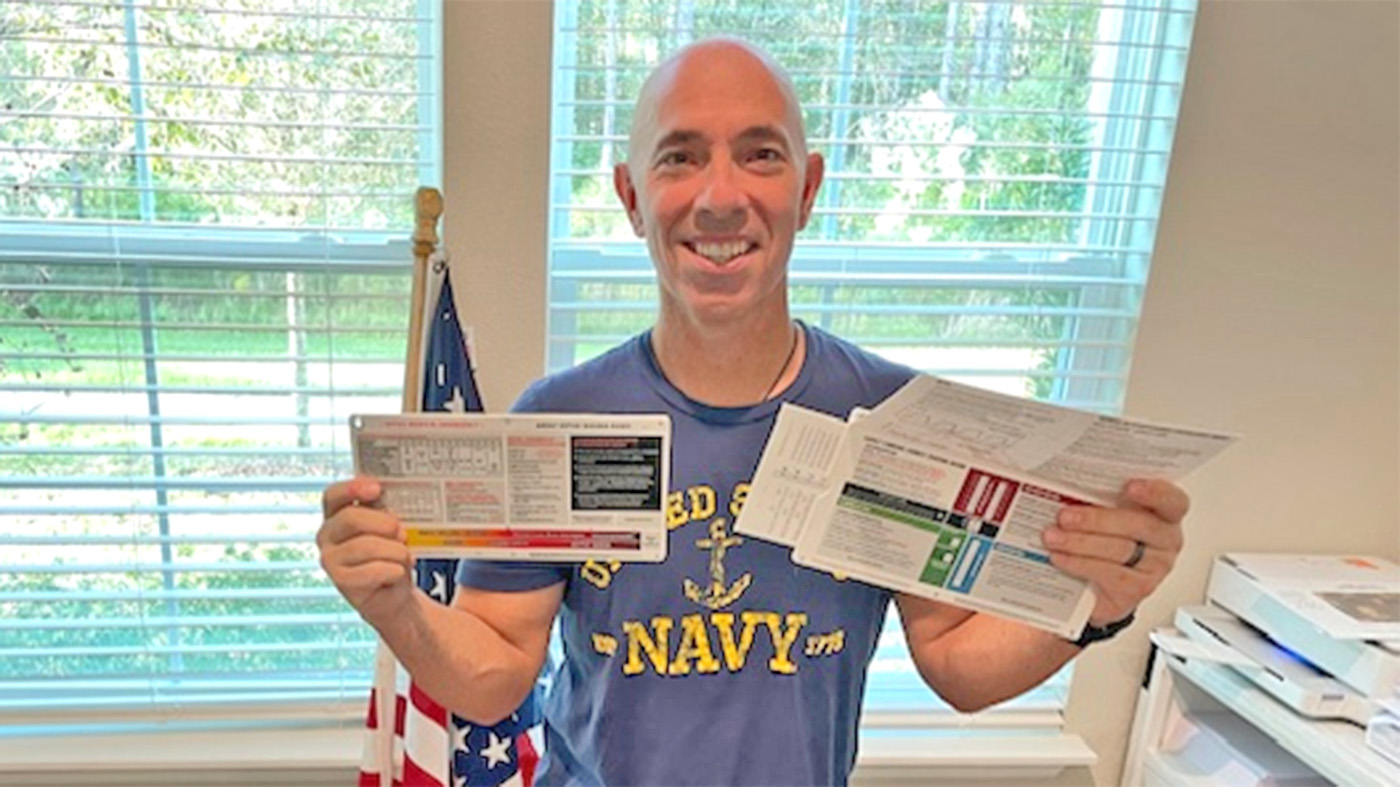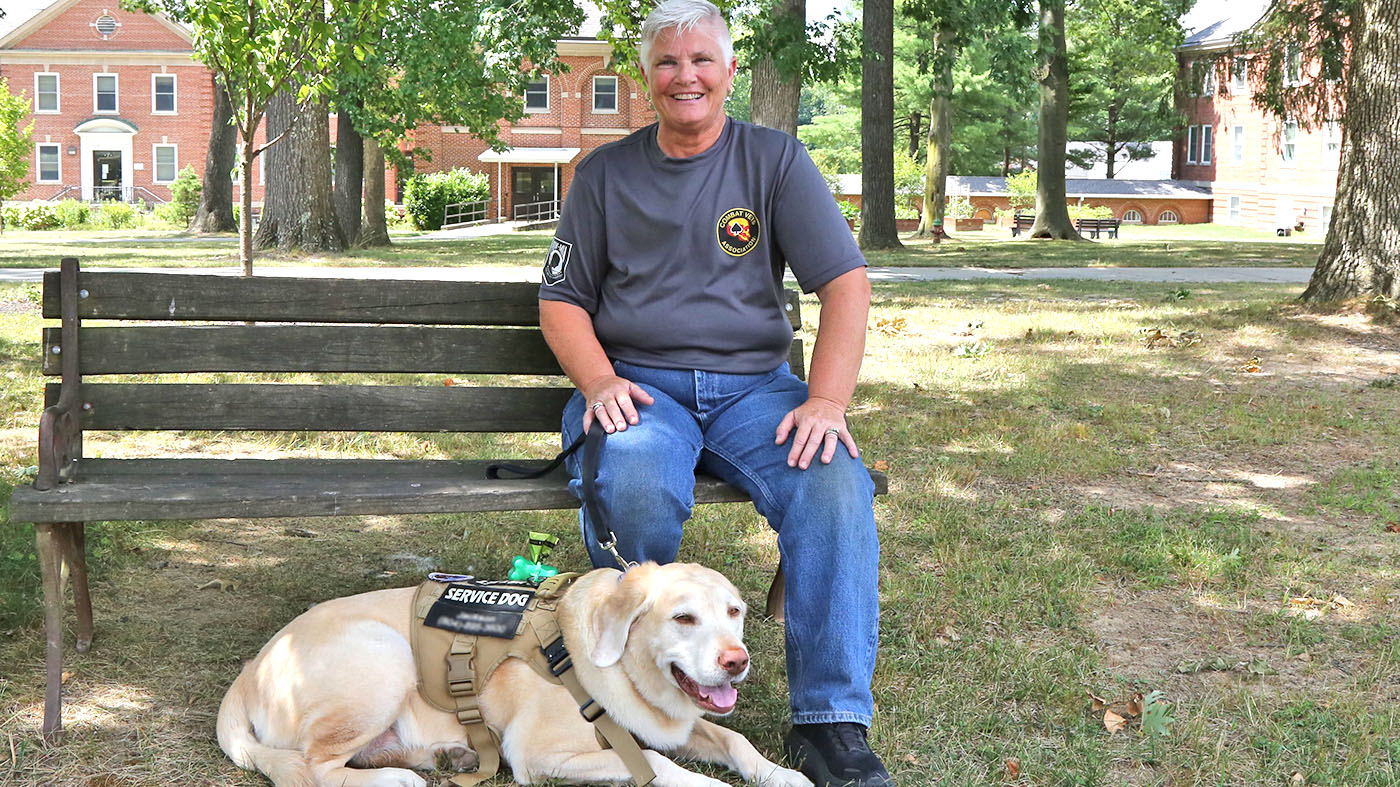After doctors diagnosed Army Veteran Stephen Glaus (above) with multiple sclerosis, he rose from despair to “a new hope and a new purpose for my life.” He tells his story here:
There are plenty of stories out there about perseverance, overcoming the odds and resiliency. Before doctors diagnosed me with multiple sclerosis, I always admired those who, despite all the obstacles, overcame hardship and found victory instead.
Until recently, I wondered if life would ever give me the chance to test my character, one where I would be entrenched deep into near certain defeat, only to conquer the challenge and rise as a champion. I didn’t have to wait long for the challenger to appear.
Sure, I had served in the Army, deployed to Iraq as a solider and then once more to Afghanistan as a civilian contractor. The grueling grind of life overseas, in a desolate and tumultuous environment, was tough.
Little did I know that a conflict inside my own body would manifest itself as the great Goliath I had pondered facing.
My physique was feeble and frail
In July 2018, doctors diagnosed me with Multiple Sclerosis. A war was waging in my mind and body, and I became host and witness to the progression of an unrelenting onslaught of neurological atrophy. Functions that I had ordinarily assumed to have unabating control of seemed to mock me with their newfound mental strain.
Seeing, walking, and even controlling my bladder became immovable mountains that I could barely climb. MS made my strong and formidable physique – the one I had once entrusted with confident familiarity – stricken lame, unrecognizably feeble and frail.
In the depths of my despair, I stumbled upon a new hope, a new ambition, and a new purpose for my life. Whether it was good fortune, fate or mere coincidence, I met a man who had walked the road set before me. He had conquered the Goliath standing in my way.
David Lyons, founder of the MS Fitness Challenge (MSFC), was a bodybuilder and master trainer who overcame the odds. He proved to the world that MS, while still inextinguishable (at least for now), is a disease that can be tamed and reigned in. He inspired me to get involved with his charity. Together, we help others who are fraught with the fear and anxiety that typically correspond to MS.
A great care team at VA
Within a few months I had become certified as a personal trainer with a special MS certification. I’ve since started training people with MS in my local area and am working with David to expand the MSFC and make it more accessible to people with MS all around the world.
I’m fortunate to have a great care team at VA, as well as at a local hospital, afforded to me through the VA Choice program. I’m extremely thankful for the program, as it allows me to seek care at a local hospital rather than travel nearly two hours to go to my nearest VA facility that offers specialized MS care.
There’s no denying that I find myself in a well-fortified position as I have the support of my local VA primary care team, and my VA Choice local-hospital MS team. And my VA MS Center of Excellence care team in Baltimore.
Their combined wealth of knowledge and my afforded access to care and treatment has provided me with an effective strategy to treat my disease course.
My battle with MS is unrelenting. There are some days when I question if I really need my semi-annual Rituxan infusion. But MS strikes swiftly and I’ve stumbled with two relapses since my diagnosis. I’m currently training for an Ironman triathlon in September 2020.
It sounds impossible, I know. But as the Army taught me, I will never quit, I will never surrender and I will never give up on myself.
VA is dedicated to improving the quality of life of Veterans who have MS. If you are interested in learning more about MS care in the VA, please visit the VA Multiple Sclerosis Centers of Excellence website at www.va.gov/MS.
Stephen Glaus is an Army Veteran.
Topics in this story
More Stories
Forget 'No Pain, No Gain'—try 'No Pain, More Gain' with Tai Chi! Calm the mind and gift yourself well-being in this week's #LiveWholeHealth practice.
Critical care dosing guides are critical in emergency care where a clinical team’s skill and focus matter most.
Combat Veteran faces the traumatic events of her PTSD during prolonged exposure therapy and looks forward to the days to come.








Wow Soldier that’s quite a squat . The VA gave me hope and a weight room in early 80s. Could not diagnose my issues at that time. But always felt neurologically better after lifting. I’m thankful for the VA and ongoing studies.
I used to trip over the white lines in the highway when I taught at the Academy of Health Sciences, Ft. Sam Houston, Texas in 1980-83. My mother-in-law used to laugh at me falling and having a problem walking as I was a runner. Fast forward to 2005/6. I had to ask the Commander at Al Dhafra to go home (DOD Civilian) as I would get ill in the heat (Uhtoffs Syndrome). It took me 10 years and going to the BVA to get service-connected for MS. As an older man now, I have to use crutches and a wheelchair. I still walk as much as possible. Thanks for your great example!
Very motivating.